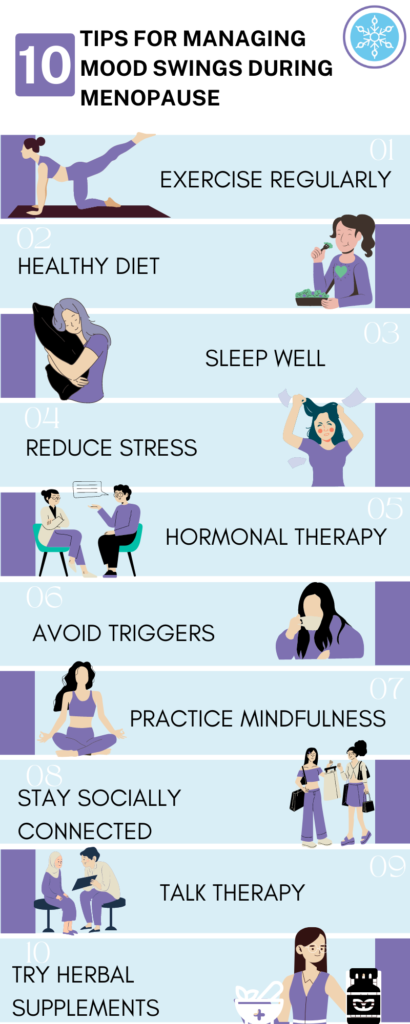Managing Mood Swings During Menopause
Menopause is a natural biological process that all women go through as they age. It marks the end of a woman’s reproductive years and is typically characterized by a range of physical and emotional symptoms. One of the most common and challenging symptoms of menopause is mood swings.
Understanding Menopausal Mood Swings
Menopausal mood swings are often caused by hormonal fluctuations that occur as a woman’s body transitions out of its reproductive years. Estrogen and progesterone levels fluctuate during menopause, which can lead to irritability, anxiety, and depression. Other factors, such as stress, lack of sleep, and changes in lifestyle, can also contribute to mood swings during this time.
Healthy Habits for Managing Menopausal Mood Swings
While menopausal mood swings can be challenging, there are several strategies that women can use to manage their emotions and improve their overall well-being during this time:
1. Prioritize Self-Care
Self-care is crucial during menopause, as it can help women manage stress and improve their emotional well-being. This can include activities such as exercise, meditation, yoga, and spending time with loved ones. Taking time for oneself and engaging in activities that bring joy and relaxation can help women navigate the emotional ups and downs of menopause.
2. Maintain a Healthy Lifestyle
Eating a healthy diet, getting regular exercise, and practicing good sleep hygiene can all help women manage their mood swings during menopause. Foods rich in vitamins, minerals, and antioxidants can help regulate mood and energy levels, while staying active can boost endorphins and improve overall mental health.
3. Seek Support
Menopause can be a challenging time for women, both physically and emotionally. Seeking support from friends, family, or a therapist can help women navigate the changes and challenges of menopause. Connecting with others who are going through similar experiences can provide comfort, validation, and a sense of community.
Medical Interventions for Menopausal Mood Swings
In some cases, menopausal mood swings may be severe enough to warrant medical intervention. Hormone replacement therapy (HRT) is a common treatment option for menopausal symptoms, including mood swings. HRT can help balance hormone levels and alleviate mood swings, depression, and anxiety.
Antidepressants and other medications may also be prescribed to help manage severe mood swings during menopause. It’s important for women to work closely with their healthcare provider to determine the best treatment plan for their individual needs and preferences.
Conclusion
Menopausal mood swings can be a challenging and frustrating symptom of menopause, but there are strategies and interventions that can help women manage their emotions and improve their overall well-being during this time. Prioritizing self-care, maintaining a healthy lifestyle, seeking support, and exploring medical interventions are all important steps women can take to navigate the emotional ups and downs of menopause.
By taking a proactive approach to managing their mood swings, women can feel more empowered and in control during this significant stage of life.


